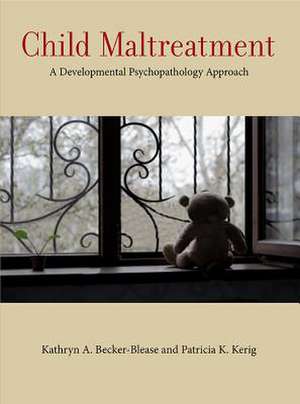Child Maltreatment – A Developmental Psychopathology Approach: Concise Guides on Trauma Care Series
Autor Kathryn A. Becker–blease, Patricia K. Kerigen Limba Engleză Paperback – 17 apr 2016
Preț: 193.04 lei
Preț vechi: 286.49 lei
-33% Nou
Puncte Express: 290
Preț estimativ în valută:
36.94€ • 38.70$ • 30.61£
36.94€ • 38.70$ • 30.61£
Carte indisponibilă temporar
Doresc să fiu notificat când acest titlu va fi disponibil:
Se trimite...
Preluare comenzi: 021 569.72.76
Specificații
ISBN-13: 9781433822216
ISBN-10: 1433822210
Pagini: 160
Dimensiuni: 197 x 229 x 11 mm
Greutate: 0.23 kg
Editura: Wiley
Seria Concise Guides on Trauma Care Series
ISBN-10: 1433822210
Pagini: 160
Dimensiuni: 197 x 229 x 11 mm
Greutate: 0.23 kg
Editura: Wiley
Seria Concise Guides on Trauma Care Series
Cuprins
Series Foreword
Anne DePrince and Ann T. Chu
- Maltreatment From a Developmental Psychopathology Perspective
- Infant and Toddler Maltreatment
- Maltreatment of Preschool-Age Children
- Maltreatment in Middle Childhood
- Maltreatment in Adolescence
- Emerging Adulthood
Afterword
Appendix
References
Index
About the Authors
Notă biografică
Descriere
Explains and summarises the science of developmental psychopathology for clinicians and other professionals who work with maltreated children and those at risk. The authors focus particularly on how maltreatment differentially affects children at key stages of their lives, ranging from infancy to early adulthood, so that clinicians can be aware of age specific vulnerabilities.




